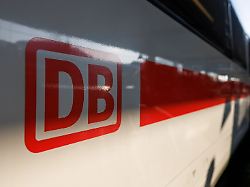Indefinite strike possible
Railway wage negotiations have failed
06/21/2023, 8:05 p.m
Is Germany facing indefinite rail strikes at the start of the holiday season? The union EVG declares at least the collective bargaining with Deutsche Bahn to have failed. On Thursday, the interest group wants to decide on how to proceed.
In the collective bargaining conflict between Deutsche Bahn (DB) and the railway workers’ union EVG, an agreement has failed for the time being. The EVG announced that against the background of the demands decided at the time in Fulda, the term of 27 months in particular had been rated as clearly too long and the wage increase offered as too low and too late.
The federal executive board of the EVG will decide on how to proceed on Thursday in Berlin, said EVG negotiator Kristian Loroch. Apart from indefinite strikes at the beginning of the holiday season, an arbitration procedure is also conceivable. One or more arbitrators would try to mediate between the parties to the collective bargaining agreement. A few weeks ago, an arbitration procedure paved the way for a solution to the public service wage dispute.
Since the end of February, the EVG has been negotiating with dozens of railway companies about higher wages and salaries for a total of around 230,000 employees. The focus was on the negotiations with Deutsche Bahn (DB), where a good 180,000 of these employees work.
On Tuesday, EVG announced an agreement with the Transdev Group, which includes companies such as Bayerische Regiobahn, Nordwestbahn and Transdev Hannover. The union said that other private railway companies were also willing to conclude contracts at around this level, describing the conclusion as a benchmark for negotiations with DB.
The union originally went into collective bargaining with the demand for 650 euros more per month for all employees with a term of the collective agreement of 12 months. At the end of May, Deutsche Bahn promised twelve percent more in several stages for the lower wage groups over a period of two years. The middle groups should get a total of ten percent more and the upper groups eight percent. The first stage of the increase should therefore be scheduled for this year. An inflation compensation premium in several payments totaling 2850 euros, which is tax and duty-free, was also planned.
